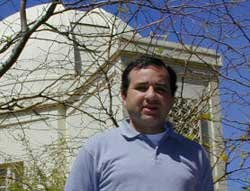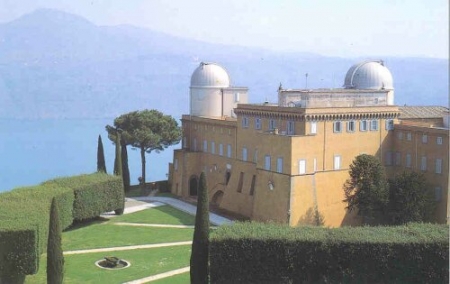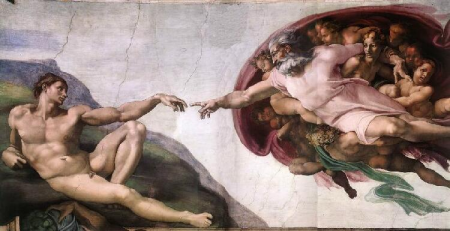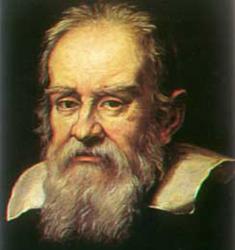

 subscribe
subscribe"The extraterrestrial is my brother,"- The Vatican’s chief astronomer says that believing in the existence of extra terrestrials does not contradict faith in God. Father Jose Gabriel Funes, says that the vastness of the universe means it is possible there could be other forms of life outside Earth, even intelligent ones.
The interview originally published in the L'Osservatore Romano, was translated by Fr. Roderick:

Father Jose Gabriel Funes
Does the theory of the Big Bang reinforce or contradict the belief that is based on the Biblical account of creation?
As an astronomer, I continue to believe that God is the creator of the universe and that we are not the result of chance, but the children of a good father, who has a loving plan for us. The Bible is fundamentally not a science book. Dei Verbum stressed that it’s the book of God’s word addressed to us men. It’s a love letter that God wrote to his people, in a language that is two or three thousand years old. At that time a concept like that of the Big Bang was of course unknown. So we can’t ask the Bible for a scientific answer. At the same time, we don’t know whether in a near or distant future, the theory of the Big Bang will be replaced by a more exhaustive and complete explanation of the origin of the universe. Right now, it’s the best theory, and it’s not contradicting faith. It’s reasonable.
But the book of Genesis speaks of earth, of animals, of man and woman. Does this exclude the possibility of the existence of other worlds or living beings in the universe?
I think that that possibility exists. Astronomers believe that the universe consists of hundreds of billions of galaxies, and each of these consists of hundreds of billions of stars. Many of them, or almost all of them, could have planets. How could we rule out that life has also developed elsewhere? Astrobiology is a branch of astronomy that studies this very topic, and it has made a lot of progress over the last few years. When we examine the light-spectra of the stars and planets, we can quickly determine the elements of their atmospheres - the so-called ‘biomakers’ - and understand whether or not there are conditions for the birth and development of life. Furthermore, there could in theory be lifeforms even without oxygen or hydrogen. About: JFunes and Vaticanobservatory at castel Gandolfo, Vatican.
Do you refer also to beings similar to us, or even more evolved?
It’s possible. However, so far we haven’t got any proof. But in such a big universe, this hypothesis can’t be excluded.

And that wouldn’t be a problem for our faith?
I don’t think so. Just like there is an abundance of creatures on earth, there could also be other beings, even intelligent ones, that were created by God. That doesn’t contradict our faith, because we cannot put boundaries to God’s creative freedom. As saint Francis would say, when we consider the earthly creatures to be our “brothers” and “sisters”, why couldn’t we also talk about a “extraterrestrial brother”? He would still be part of creation.
And what about redemption?
Let’s borrow the image from the gospel about the lost sheep. The shepherd leaves the 99 of the sheepfold to search for the one that got lost. Let’s imagine that in this universe there are 100 sheep, corresponding to the different forms of creatures. We who belong to the human race, could very well be the lost sheep, the sinners that need the shepherd. Got has become man in Jesus to save us. In that way, even when other intelligent beings exist, it’s not said that they would need redemption. They might have stayed in full friendship with their Creator.

I insist: when they would, on the contrary, be sinners, would redemption also be possible for them?
Jesus incarnated once and for all. The incarnation is a unique and non-repeatable event. However, I am certain that they too, in one way or another, would have the possibility to experience God’s mercy, just like we men have.
The Star Wars Ewok Gospel:
Here what happened historically:

(text from Universetoday)
Four centuries after Galileo Galilei was ordered by the Catholic Church to come to Rome and stand trial on suspicion of heresy, a statue of the Italian astronomer will be erected at the Vatican. 2009 is the International Year of Astronomy, which celebrates 400 years since Galileo first used a telescope to study the heavens, and the Vatican plans to join in commemorating the anniversary. Galileo was condemned to house arrest by the Catholic Church in 1633 because his belief that the sun was at the center of the solar system, and not the Earth, contradicted the bible.
The statue was commissioned by the Pontifical Academy of Sciences and was paid for with private donations. The president of the Academy, Nicola Cabibbo, said the statue shows Galileo standing and gesturing as if he were teaching. Cabibbo, a particle scientist, said honoring Galileo in this way is important because the Academy considers Galileo to be one of the oldest members of their group. Galileo was a member of the National Academy of Lincei, from which the Pontifical Academy began.
At his trial, Galileo argued that his heliocentric beliefs and writings did not oppose the church’s teachings, and stated that the bible was not meant to provide scientific explanations. He once wrote that scripture does not reveal what is in the heavens, but rather how to get to heaven.
In 1992, Pope John Paul II acknowledged that that the church made a mistake when it condemned Galileo for maintaining that the Earth revolved around the sun. At that time the church officially conceded that the Earth was not stationary. The pope also said that theologians should keep informed on scientific advances to determine if there would be cause for “introducing changes in their teaching.” Via Universetoday
| Attachment | Size |
|---|---|
| funes.jpg | 11.23 KB |
| galileo_sustermans.thumbnail.jpg | 9.31 KB |
| castel-gandolfo.jpg | 88.27 KB |
| god-sistine_chapel.png | 195.35 KB |